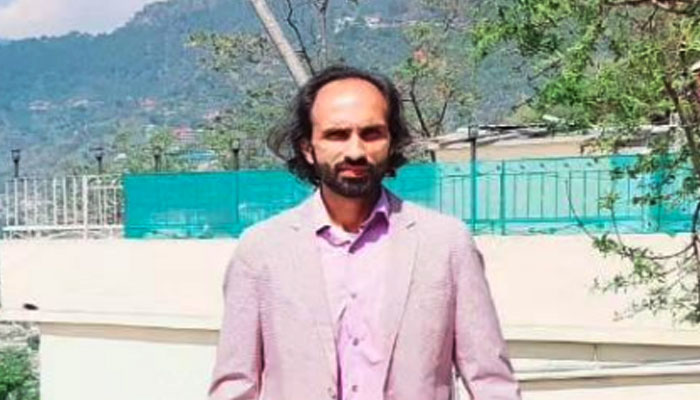MUZAFFARABAD: Kashmiri poet Ahmed Farhad Friday was granted bail by the Azad Jammu and Kashmir (AJK) High Court weeks after his arrest by the AJK police.
His bail plea was approved by the court against a surety bond worth Rs200,000.
The Islamabad High Court (IHC), earlier this week, termed his arrest “illegal” and declared the poet as a “missing person” until he returned back to his home.
The court’s order read that the poet was missing since May 15 and couldn’t reach home, while a first information report (FIR) regarding his disappearance was registered with the Lohebher Police Station in Islamabad under Section 427 and 365 PPC.
As per the order, the court was told that Farhad Ali was arrested by Police Station Dherkot Kashmir and was also wanted by the Saddar Police Station Muzaffarabad in another case of terrorism.
It added that in above circumstances the person couldn’t be produced before the bench. Therefore, the court reached a conclusion that he was forcibly disappeared and the institution concerned failed to recover him.
The court, in its order, mentioned that Farhad was currently in judicial custody, as per the investigation officer, and declared his arrest “illegal”.
The court stated that the investigation officer of Lohebher Police Station was bound to record the poet’s statement under Section-164 before a judicial magistrate after his return and proceed the investigation in light of his statement.
Farhad, a defiant poet from Kashmir, remained missing for 15 days last month after which Attorney General for Pakistan Mansoor Usman Awan revealed that he was, in fact, arrested and in AJK police’s custody. The AGP’s statement came on May 29, in response to IHC’s directions to ensure Farhad’s recovery.
The poet was arrested and transferred to Muzaffarabad from DhirKot under multiple sections of the Anti-Terrorism Act (ATA).
His matter came into the spotlight after he allegedly went missing during protests in AJK in May following which his wife, Urooj Zainab, moved the IHC seeking her husband’s recovery, requesting the court to identify, investigate, and prosecute those responsible for his disappearance.
